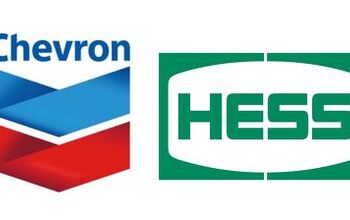Ford Repair Shops to Undergo Mandatory Certification For Aluminium F-150s
Own a Ford dealership with a repair shop? Should your mechanics and body repair crew desire to the ability to repair the new aluminium F-150, then prepare to seek certification with a substantial price tag.
At a National Automobile Dealers Association meeting this weekend, the Blue Oval announced a certification program for Ford dealers with repair shops in order to be able to work on the new F-150s. The program — which includes tooling upgrades alongside training — will range between $30,000 and $50,000, though Ford will pitch in with $10,000 for each dealership’s shop upgrade and certification.
The move goes against an earlier statement made by the automaker, which did not require dealer-owned repair facilities to be certified to work on the aluminum-bodied truck. However, the certification is in line with requirements from German automakers whose lineups include vehicles heavily utilizing the metal.
Dealers who opt for certification claim that by doing so, they would have exclusivity — and more business — around F-150 repairs such as the ones that might be required by the new F-150. Ford also hopes the strategy pays off for their dealer network’s shops, as 80 percent of repair work performed on their offerings are done by independent repair shops.
Ford also outlined its strategy for making the vehicle easier to repair, with the trucks being built in a modular fashion that allows for a cheaper, easier method of replacing damaged components. Aside from ease of repair, Ford also aimed at keeping insurance premiums in line with the current truck, so as not to ward off buyers who feared excessive insurance costs.
More by TTAC Staff


































Comments
Join the conversation
My guess is that when people start to wreck these things in large numbers and suddenly the insurance companies freak out about the cost of Al body panels, paying for specialty certified body shops (or having to pay to fix shoddy repair jobs by shops not used to working with Al), the increased cost of premiums will put a huge dent in sales. Trucks are supposed to be cheap to fix because they will inevitably get damaged during regular use--can't wait to see how fleet operators will deal with half of a dozen F150s with sky high premiums. That's assuming Ford can source enough Aluminium to keep production up and somehow assemble these things without making a hack job of oddly fitted panels and paint that doesn't match or just comes off/oxidizes... or they can even get the welds right. Good luck to all intrepid first adopters, be aware of your states' lemon laws! Quality is a job... that we're probably supposed to do.
Why have so many people injected politics into this discussion? Ford is a business that designed a product featuring a material that they hope will provide a competitive advantage. What governmental boogeyman twisted their corporate arm to do this? Have you folks looked at an over-the-road truck lately? The cabs are usually made of aluminum, the front end/hood is fiberglass and the trailer uses lightweight materials wherever feasible. Nobody forced the OTR truck makers to do this; less weight in the truck body means more payload capacity and better unloaded fuel economy.
More expensive to ensure? Perhaps. More expensive to repair? I believe more body panels are replaced these days as opposed to actually being repaired. And any increased expense will be more than offset by higher used truck values in the rust belt. Ask yourself which would you buy - the 10 year old aluminum bodied F150 with no rust, or the competitors rust bucket? Bottom line: Win for both Ford and F150 buyers.
Depending on how well Ford designed the truck's aluminum durability and repair will make or break it's perception with the American public , much like how GM killed the diesel in cars .